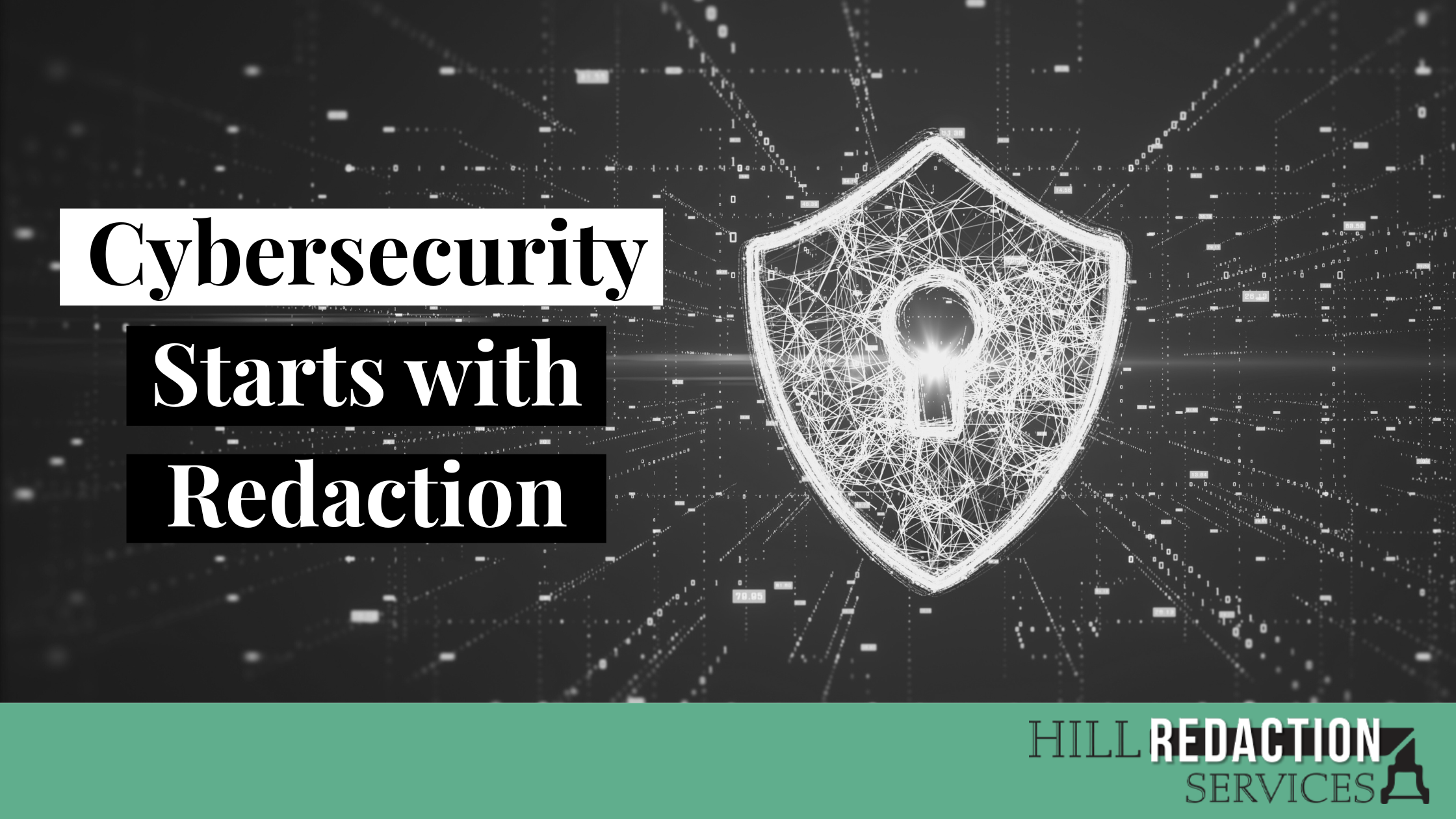
Why Redaction Matters Within Legal Compliance
In the legal industry, where transparency and confidentiality are interlinked, redaction plays a crucial role. It’s more than just blacking out text; it’s a critical process that ensures compliance, protects sensitive information, and upholds ethical standards.
What is redaction?
Redaction is the concealing of specific portions of a document to protect confidential or sensitive information. This comes into play within the legal industry when sharing documents with opposing counsel, regulatory bodies, or the public. Failing to redact information properly can lead to severe consequences, including substantial fines, legal penalties, and reputational damage.
What must be redacted?
Common types of information that often require redaction in the legal space include:
- Personally Identifiable Information (PII): Social Security numbers, financial account details, medical records, and other data that could be used to identify an individual.
- Confidential Business Information: Trade secrets, financial projections, and internal strategies that could harm a company’s competitive advantage.
- Privileged Communications: Attorney-client communications, work product, and other information protected by legal privilege.
Why is redaction crucial in the legal industry?
The digital age has made legal redaction more complex and crucial. Electronic documents are easily copied and distributed, increasing the risk of inadvertent disclosure. Modern redaction software offers more robust and secure solutions. It is now possible to ensure that sensitive information is permanently removed from a document’s metadata and underlying code.
How does compliance play a factor in legal redaction?
Several compliance regulations play a major role in legal redaction. These regulations, such as HIPAA for healthcare, GDPR for data privacy in Europe, and specific court rules for legal proceedings, mandate the protection of sensitive information. Failure to comply with these regulations can result in severe penalties, including fines, legal sanctions, and reputational damage.
How does legal redaction increase client trust?
Proper redaction is not simply a matter of compliance; it’s a matter of trust and ethics. By protecting sensitive information, legal professionals demonstrate their commitment to client confidentiality and uphold the integrity of the legal system.
Need help ensuring your documents are properly redacted? Contact Hill Redaction Services today to learn more about our secure and reliable redaction solutions.
Related Posts

Why Redaction Matters Within Legal Compliance
In the legal industry, where transparency and confidentiality are interlinked, redaction plays a crucial role. It’s more than just blacking out text; it’s a critical process that ensures compliance, protects sensitive information, and upholds ethical standards.
What is redaction?
Redaction is the concealing of specific portions of a document to protect confidential or sensitive information. This comes into play within the legal industry when sharing documents with opposing counsel, regulatory bodies, or the public. Failing to redact information properly can lead to severe consequences, including substantial fines, legal penalties, and reputational damage.
What must be redacted?
Common types of information that often require redaction in the legal space include:
- Personally Identifiable Information (PII): Social Security numbers, financial account details, medical records, and other data that could be used to identify an individual.
- Confidential Business Information: Trade secrets, financial projections, and internal strategies that could harm a company’s competitive advantage.
- Privileged Communications: Attorney-client communications, work product, and other information protected by legal privilege.
Why is redaction crucial in the legal industry?
The digital age has made legal redaction more complex and crucial. Electronic documents are easily copied and distributed, increasing the risk of inadvertent disclosure. Modern redaction software offers more robust and secure solutions. It is now possible to ensure that sensitive information is permanently removed from a document’s metadata and underlying code.
How does compliance play a factor in legal redaction?
Several compliance regulations play a major role in legal redaction. These regulations, such as HIPAA for healthcare, GDPR for data privacy in Europe, and specific court rules for legal proceedings, mandate the protection of sensitive information. Failure to comply with these regulations can result in severe penalties, including fines, legal sanctions, and reputational damage.
How does legal redaction increase client trust?
Proper redaction is not simply a matter of compliance; it’s a matter of trust and ethics. By protecting sensitive information, legal professionals demonstrate their commitment to client confidentiality and uphold the integrity of the legal system.
Need help ensuring your documents are properly redacted? Contact Hill Redaction Services today to learn more about our secure and reliable redaction solutions.





